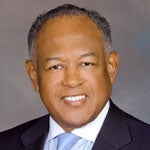Can Inclusive Economic Development Build Better Jobs and a Stronger Regional Economy?
Audio (MP3)
To download, click here.
About this Event
Traditional economic development focused on attracting large companies promising many jobs has left behind many people in communities across the country, including working people, low-income individuals and families, people of color and immigrants. But some communities have taken a different approach, one that embraces and cultivates local assets and ownership and that empowers traditionally excluded communities. This event explores the approaches these communities have taken, including alternative business ownership models, leveraging the purchasing power of large public and nonprofit institutions to bolster communities, robust workforce development, more equitable infrastructure development, and more. Panelists discuss how inclusive economic development cultivates economic opportunity and quality jobs for community residents.
Highlights
Enjoy a selection of video clips from this event.
Featured speakers
 Mayor Dwight C. Jones has been an active public servant in the city of Richmond for over 35 years. He was first elected mayor in 2008 and won a second term in November 2012. In early 2014, Mayor Jones established the Mayor’s Office of Community Wealth Building to oversee a comprehensive anti-poverty strategy. This office coordinates seven traditionally siloed policy areas to expand opportunity for low-income residents, build community wealth, and broadly share the benefits of economic development. This office has launched comprehensive economic and community development efforts including a citywide Social Enterprise initiative linked to anchor institutions, Promise Scholarships, and a public housing redevelopment process. Mayor Jones served in the Virginia House of Delegates from 1993 through 2008 and is the former chairman of the Democratic Party of Virginia.
Mayor Dwight C. Jones has been an active public servant in the city of Richmond for over 35 years. He was first elected mayor in 2008 and won a second term in November 2012. In early 2014, Mayor Jones established the Mayor’s Office of Community Wealth Building to oversee a comprehensive anti-poverty strategy. This office coordinates seven traditionally siloed policy areas to expand opportunity for low-income residents, build community wealth, and broadly share the benefits of economic development. This office has launched comprehensive economic and community development efforts including a citywide Social Enterprise initiative linked to anchor institutions, Promise Scholarships, and a public housing redevelopment process. Mayor Jones served in the Virginia House of Delegates from 1993 through 2008 and is the former chairman of the Democratic Party of Virginia.
 Marjorie Kelly is the executive vice president for and a senior fellow with The Democracy Collaborative, where she oversees a variety of consulting and research projects and serves as a member of the executive team. Ms. Kelly currently works with foundations involved in economic development and impact investing, and is leading a national collaborative effort to promote a movement toward employee ownership conversions. Previously, she was a fellow with Tellus Institute, and was co-founder and, for twenty years, president of Business Ethics magazine. She is author of Owning Our Future: The Emerging Ownership Revolution (Berrett-Koehler, 2012), winner of a Silver Nautilus Award; and The Divine Right of Capital, named one of the 10 Best Business Books of 2001 by Library Journal.
Marjorie Kelly is the executive vice president for and a senior fellow with The Democracy Collaborative, where she oversees a variety of consulting and research projects and serves as a member of the executive team. Ms. Kelly currently works with foundations involved in economic development and impact investing, and is leading a national collaborative effort to promote a movement toward employee ownership conversions. Previously, she was a fellow with Tellus Institute, and was co-founder and, for twenty years, president of Business Ethics magazine. She is author of Owning Our Future: The Emerging Ownership Revolution (Berrett-Koehler, 2012), winner of a Silver Nautilus Award; and The Divine Right of Capital, named one of the 10 Best Business Books of 2001 by Library Journal.
 Sanjay Pinto is a sociologist, a fellow at The Worker Institute at Cornell, and a fellow at the Rutgers School of Management and Labor Relations. His current work focuses on understanding labor market inequality and studying and supporting efforts to build power and raise standards for low-wage workers. He recently completed a report on the potential benefits of broad-based worker ownership, written for the Surdna Foundation. Previously Dr. Pinto spent several years working for social and economic justice organizations, including the Southern Poverty Law Center, the AFL-CIO’s Center of Strategic Research, and SEIU. After completing his PhD, he spent two years as a post-doctoral research fellow at Columbia’s Committee on Global Thought. Dr. Pinto holds an MSc in Development Studies from the London School of Economics and a PhD in Sociology and Social Policy from Harvard.
Sanjay Pinto is a sociologist, a fellow at The Worker Institute at Cornell, and a fellow at the Rutgers School of Management and Labor Relations. His current work focuses on understanding labor market inequality and studying and supporting efforts to build power and raise standards for low-wage workers. He recently completed a report on the potential benefits of broad-based worker ownership, written for the Surdna Foundation. Previously Dr. Pinto spent several years working for social and economic justice organizations, including the Southern Poverty Law Center, the AFL-CIO’s Center of Strategic Research, and SEIU. After completing his PhD, he spent two years as a post-doctoral research fellow at Columbia’s Committee on Global Thought. Dr. Pinto holds an MSc in Development Studies from the London School of Economics and a PhD in Sociology and Social Policy from Harvard.
 Emily Kawano is co-director of the Wellspring Cooperative Corporation, which is seeking to create an engine for new, community-based job creation in Springfield, Massachusetts. Wellspring’s goal is to use anchor institution purchases to create a network of worker-owned businesses located in the inner city that will provide job training and entry-level jobs to unemployed and underemployed residents through worker-owned cooperatives. Ms. Kawano also serves as coordinator of the United States Solidarity Economy Network. She received her Ph.D in economics from UMass, Amherst and served as the director of the Center for Popular Economics from 2004 to 2013. Prior to that, Ms. Kawano taught economics at Smith College, worked as the National Economic Justice Representative for the American Friends Service Committee and, in Northern Ireland, founded a popular economics program with the Irish Congress of Trade Unions.
Emily Kawano is co-director of the Wellspring Cooperative Corporation, which is seeking to create an engine for new, community-based job creation in Springfield, Massachusetts. Wellspring’s goal is to use anchor institution purchases to create a network of worker-owned businesses located in the inner city that will provide job training and entry-level jobs to unemployed and underemployed residents through worker-owned cooperatives. Ms. Kawano also serves as coordinator of the United States Solidarity Economy Network. She received her Ph.D in economics from UMass, Amherst and served as the director of the Center for Popular Economics from 2004 to 2013. Prior to that, Ms. Kawano taught economics at Smith College, worked as the National Economic Justice Representative for the American Friends Service Committee and, in Northern Ireland, founded a popular economics program with the Irish Congress of Trade Unions.
Moderator
 Dorian T. Warren is a fellow at the Roosevelt Institute, an MSNBC contributor, and board chair of the Center for Community Change. He is the host and executive producer of “Nerding Out” on MSNBC’s digital platform, shift.msnbc.com. A scholar of inequality and American politics, he taught for over a decade at the University of Chicago and Columbia University, where he was co-director of the Columbia University Program on Labor Law and Policy, and serves as a research associate at the Institute for Research in African-American Studies. Dr. Warren is the author of the forthcoming The Three Faces of Unions: Inclusion & Democracy in the US Labor Movement (Oxford University Press), and (with Virginia Parks) Boxing Out: Walmart & the Politics of Labor Market Regulation from Below (Russell Sage Foundation Press).
Dorian T. Warren is a fellow at the Roosevelt Institute, an MSNBC contributor, and board chair of the Center for Community Change. He is the host and executive producer of “Nerding Out” on MSNBC’s digital platform, shift.msnbc.com. A scholar of inequality and American politics, he taught for over a decade at the University of Chicago and Columbia University, where he was co-director of the Columbia University Program on Labor Law and Policy, and serves as a research associate at the Institute for Research in African-American Studies. Dr. Warren is the author of the forthcoming The Three Faces of Unions: Inclusion & Democracy in the US Labor Movement (Oxford University Press), and (with Virginia Parks) Boxing Out: Walmart & the Politics of Labor Market Regulation from Below (Russell Sage Foundation Press).
Related Resources
Inclusive Economic Development Key Terms and Concepts
Worker-Owned Businesses: A New Avenue for Inclusive Growth in the US, by Elizabeth Dwyer in the Inclusion Hub
This event is part of the Working in America series, an ongoing discussion series hosted by the Aspen Institute Economic Opportunities Program that highlights an array of critical issues affecting low- and moderate-income workers in the United States and ideas for improving and expanding economic opportunities for working people. For more information, visit as.pn/workinginamerica.
Join the conversation on Twitter with the hashtag #talkgoodjobs.
